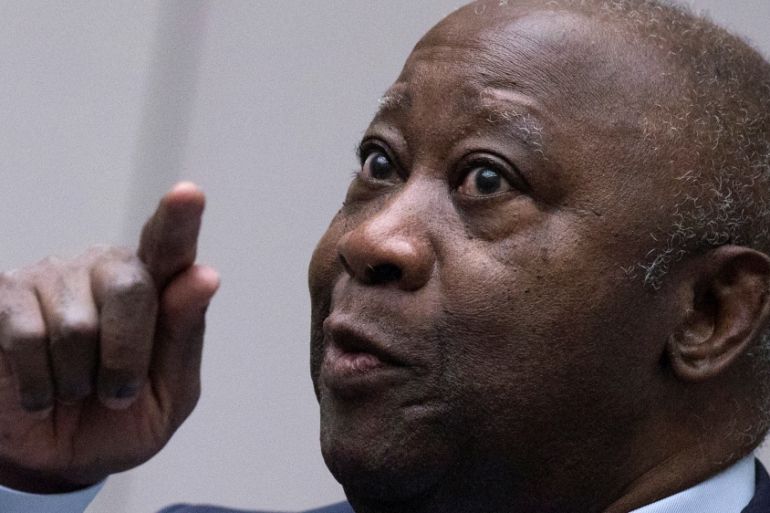Ivory Coast ex-President Gbagbo’s release delayed until February
Gbagbo was found not guilty of crimes against humanity in what some have called a blow to the ICC.

International Criminal Court appeals judges have delayed the release of former Ivory Coast President Laurent Gbagbo, ordering that he should be held for at least two more weeks despite being acquitted on charges of atrocities.
Gbagbo, who has spent seven years in custody in The Hague, was found not guilty on Tuesday over allegations of involvement in election-related violence in 2010 and 2011 in which around 3,000 people were killed.
Keep reading
list of 4 itemsICC seeks arrest of Russian officers over infrastructure attacks in Ukraine
Can international justice stop Israel?
What will be the outcome of the ICJ genocide case against Israel?
The trial judges ordered that he be set free, refusing a request by prosecutors to extend his detention while they appeal the case.
But the 3-2 decision on Friday by a five-member appeals panel means Gbagbo and his co-defendant, former Youth Minister Charles Ble Goude, will continue to be held, at least until the appeals panel has reviewed the trial chamber’s decision to release them.
A new court date was set for February 1.
![Anti-Gbagbo protests have erupted in Ivory Coast since the former leader was acquited [Luc Gnago/Reuters]](/wp-content/uploads/2019/01/9bda01ed6cbe441aace90300e8a39826_18.jpeg)
“The detention of Mr Laurent Gbagbo and Mr Charles Ble Goude shall be maintained pending the consideration of the present appeal,” the ruling said.
In their earlier ruling to free the men, the trial judges said the prosecution case was “exceptionally weak” and that it was unlikely the acquittals would be overturned.
The appeals chamber backed the prosecution arguments that Gbagbo might not return for future court hearings if he were set free.
Prosecutors noted that his wife, who is also the subject of an ICC arrest warrant, has been living openly in Ivory Coast, and that the authorities there had made clear they would not “send more Ivorians to the ICC”.
Gbagbo, the first former head of state to be taken into custody by the ICC, ruled the country from 2000 to 2011, refusing to stand down after his rival Alassane Ouattara was announced the winner of a 2010 presidential election.
After a period of post-election violence during which both men claimed the presidency, he was arrested by pro-Ouattara forces backed by France and extradited to The Hague.
|
|